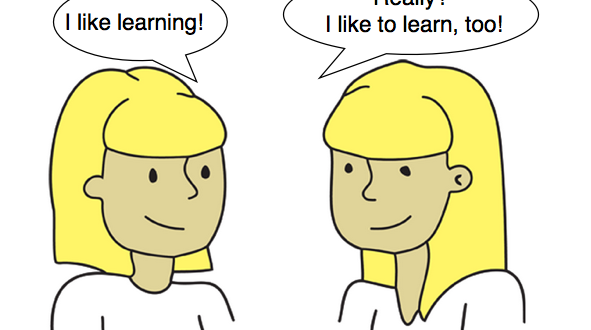Commonly, an infinitive is used with the subject it. The sentence structure is “It is + infinitive.…” It refers to the infinitive. This expression is used in many ways.
- It is time to do math.
- It is common to think that way.
- It is appropriate to keep a low profile.
- It was nice to see you.
- It was my pleasure to meet you.
- It was my honor to have dinner with you.
- It is good to see you.
- It was great to go on a trip with them.
Both gerunds and infinitive phrases can function as nouns, in a variety of ways. Gerunds and infinitives can follow certain verbs but not others. You need to remember which verbs can be followed by only a gerund or only an infinitive.
Verbs that can precede only gerunds:
consider, suggest, enjoy, deny, avoid, miss, mind, practice, postpone, resist, finish, quit, give up, put off
Verbs that can precede only infinitives:
offer, decide, hope, attempt, promise, agree, afford, deserve, refuse, undertake, learn, fail, seem, appear, tend, pretend, choose, demand, desire, guarantee, claim, manage, determine, expect, want, wish
Verbs that can precede either gerunds or infinitives without changing meanings:
continue, like, love, begin, start, propose, neglect, stand, hate
Verbs that can precede either gerunds or infinitives but change meanings:
forget, remember, stop, try
- I stopped watching the movie. (I no longer watched the movie.)
- I stopped to watch the movie. (I stopped what I was doing to watch the movie.)
[Quiz 16.1]
Fill in the blanks.
1)I decided (leave) the job.
2)She pretended (know) me.
3)He desires (be) a professor.
4)The company considered (sell) its main building.
5)I expect (win) at this game.
6)Do you enjoy (take) care of your pet?
7)She hopes (go) on a vacation.
8)Did you fail (pass) the exam?
9)They want me (take) this position.
10)It is great (hear) that they agreed (share) the land.
2)to know
3)to be
4)selling
5)to win
6)taking
7)to go
8)to pass
9)to take
10)to hear, to share
